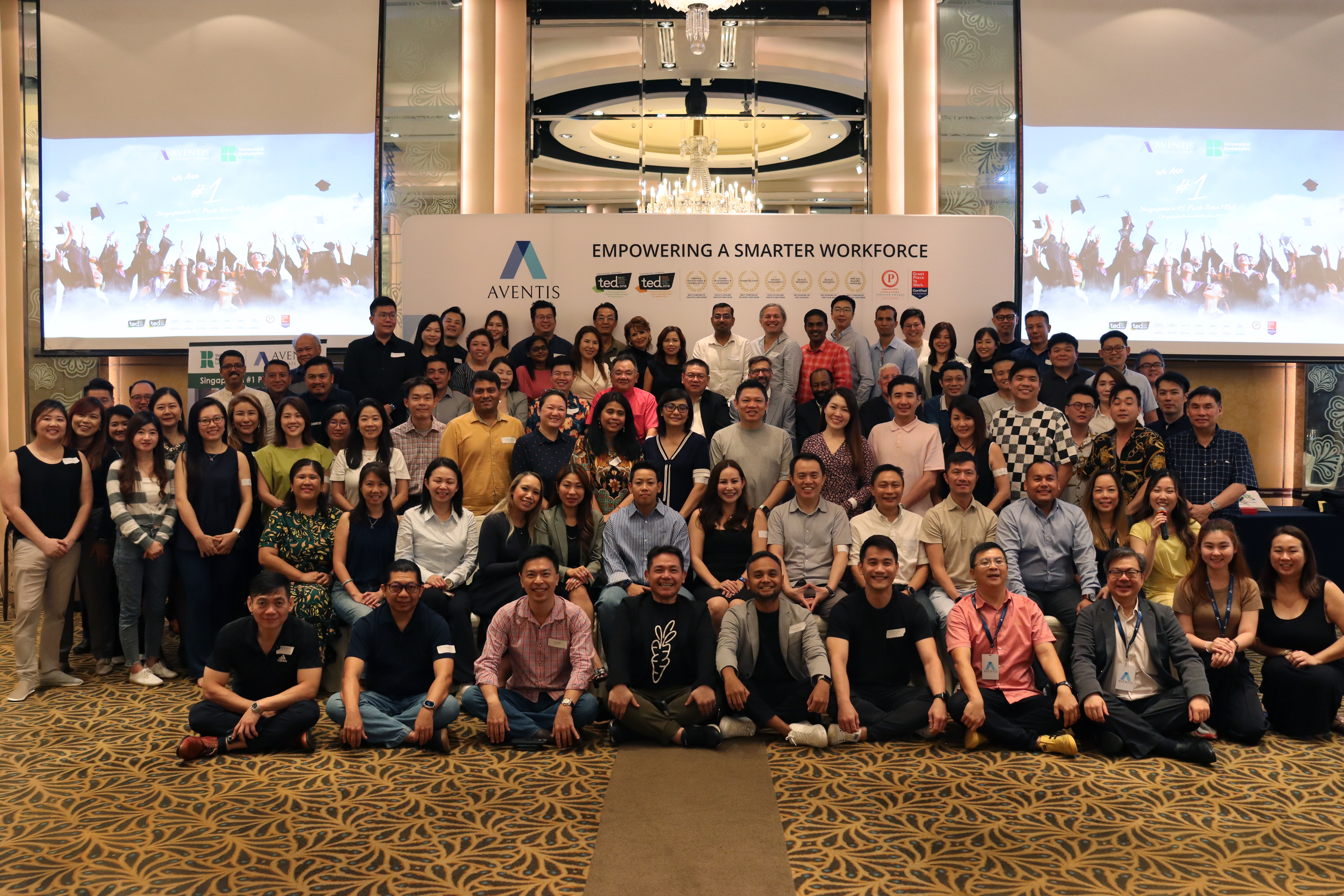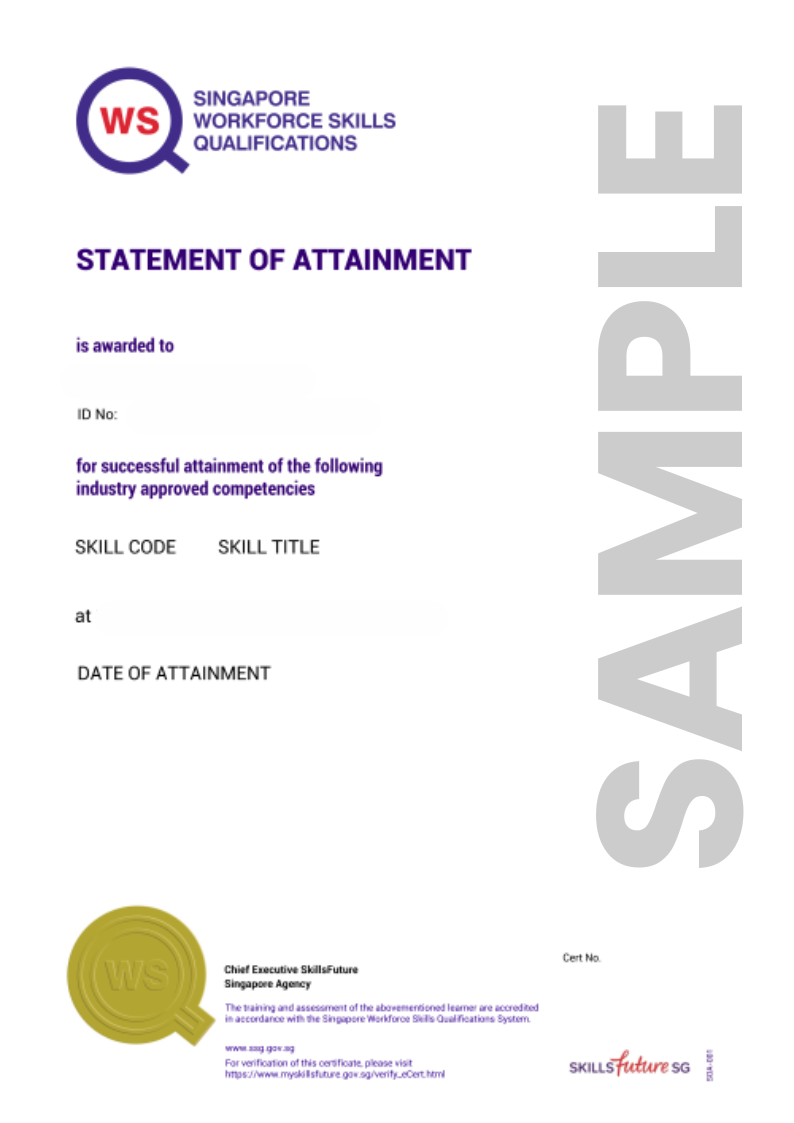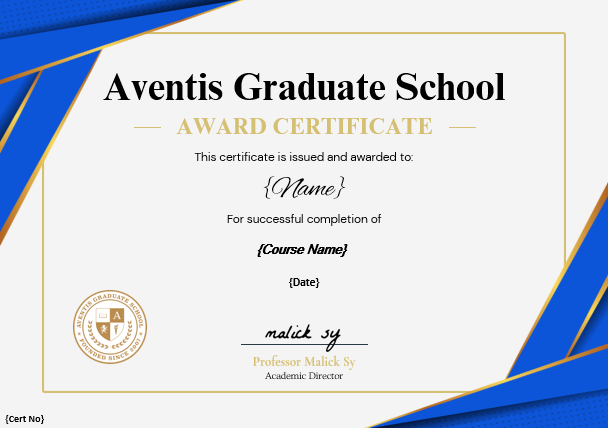Support Service and Advance Care Planning for Elders
Step into the world of eldercare with a fresh perspective! This interactive course is your gateway to mastering the art of supporting seniors through meaningful communication and personalized care planning. We’ll explore the fascinating journey of ageing, looking at how physical and emotional factors shape every senior’s unique needs and choices.
Support Service and Advance Care Planning for Elders Course
$0.00 ($1,635.00 bef. Subsidy)
-$1,050.00 (WSQ Subsidy)*
-$585.00 (SFC Credits)*
*This is a projected amount, should you qualify for these.
E-Learning via Zoom
2 Days, 9am to 5pm

Looking for 90% Subsidy?
View Corporate Training
why choose Support Service and Advance Care Planning for Elders?
Join our Support Service and Advance Care Planning for Elders course to gain practical skills in communicating and planning care for seniors with empathy, dignity, and cultural sensitivity. Ideal for healthcare and social service professionals, this course equips you to make a meaningful impact in an ageing society.
2-Day E-Learning via Zoom
Course ID: TGS-2024047631
Who is This Course For?

*Learners need to possess basic information and communication technology (ICT) skills. There are no *pre-requisites for professionals who would like to pursue the certification course.
Core Competencies You'll Gain:
Identify seniors' needs and challenges
Apply inclusive communication techniques
Outline eldercare support services
Recommend suitable care options
Support Service and Advance Care Planning for Elders Course Details
Our Support Service and Advance Care Planning for Elders course is designed for individuals committed to enhancing the quality of care and support for seniors. As the need for person-centered, dignified eldercare grows, this course offers practical training in understanding ageing-related needs, communicating with empathy, and planning tailored care services. Ideal for professionals in healthcare, social work, or caregiving roles, as well as those exploring a career in eldercare, this course equips learners with the skills to build trust, support informed decision-making, and provide compassionate, culturally respectful care. Make a meaningful difference in the lives of seniors and their families while advancing your professional expertise in a growing sector.
Synchronous
E-Learning via Zoom
2 Days,
9.00am to 5.00pm
Parking is Available
Drivers are responsible for paying their own parking fees.
Complimentary lunch and tea-break snacks are included as part of your course experience, on us!

Course Fee & Subsidies
Singaporeans aged
40 and above
Course Fee
$708.50
70% Subsidy
-$455.00
SFC Credits
-$253.50
Amount to Pay
$0
Singaporeans aged
below 40
Course Fee
$708.50
50% Subsidy
-$325.00
SFC Credits
-$383.50
Amount to Pay
$0
Permanent
Residents
Course Fee
$708.50
50% Subsidy
-$325.00
Amount to Pay
$383.50
*Please note that a $20 non-refundable and non-claimable registration fee applies for all course registrations
*Prices quoted are inclusive of GST at the prevailing rate
SkillsFuture Credits: All Singaporeans aged 25 years old and above can use their SkillsFuture Credits to fully offset the remaining fees.
UTAP Support: In addition, NTUC members can utilize UTAP to offset 50% of remaining fees (capped up to $500 per year)
Course Dates for Support Service and Advance Care Planning for Elders
No schedule dates available for this course.
Meet Your Trainers

Anthony Wong Teck Boon
Anthony Wong Teck Boon is a seasoned clinical supervisor and counsellor with over 15,000 hours of counselling and supervisory experience. He holds a Master of Arts in Counselling and Guidance and a Postgraduate Certificate in Clinical Supervision. Anthony is a Master Clinical Member and Registered Clinical Supervisor with the Singapore Association for Counselling (SAC), where he serves as the Assistant Honorary Treasurer on the Executive Committee.

Anil Singh Sona
Anil Singh Sona is a seasoned educator and trainer based in Singapore, specializing in Psychology, Sociology, and Public Safety and Security. With over 13 years of experience, he has served as a Senior Associate Lecturer and academic coach at various government and private institutions. Throughout his career, Anil has been recognized for his teaching excellence. Notably, he received Teaching Excellence Awards from SUSS in 2018 and 2022, and an Honourable Mention in 2021. In 2022, he was also honored with the Lecturer Service Award by SUSS for his decade-long service.

Christopher Fong Kong Onn
Dr. Christopher Fong Kong Onn is a distinguished clinical psychologist and organizational consultant based in Singapore, with over 27 years of clinical practice. He has transitioned through diverse careers—from a symphony orchestra conductor to a clinician specializing in mental health, and currently serves as an academic professor and leadership consultant. Dr. Fong earned his Doctor of Professional Studies (Research) from the University of Southern Queensland, focusing his thesis on "Multicultural Issues in Counselling" in a Singapore Context.
Support Service and Advance Care Planning Course Outline
Topics:
- Understanding Seniors’ Physical, Cognitive, and Emotional Needs
- Explore the unique characteristics of seniors, including chronic conditions and emotional states.
- Analyze how these needs shape their preferences in care and decision-making.
- Impact of Physical Changes on Communication
- Adapt communication methods to accommodate hearing, vision, or speech impairments.
- Practical techniques for effective dialogue despite sensory challenges.
- Impact of Cognitive Changes on Communication
- Understand how memory loss and attention deficits affect interactions.
- Strategies for engaging seniors with cognitive impairments compassionately.
- Cultural Sensitivity in Advance Care Planning
- Recognize diverse cultural attitudes towards aging and end-of-life care.
- Adapt approaches to align with cultural beliefs and values.
- Emotional Challenges in Senior Care
- Address fears of dependence, isolation, and mortality.
- Develop strategies to provide emotional reassurance and comfort.
Topics:
- Empathetic Communication Techniques for Seniors
- Overview of effective communication methods tailored for seniors.
- Practical applications of active listening, paraphrasing, and non-verbal cues to build trust and understanding.
- Navigating Aging-Related Communication Barriers
- Identifying and addressing challenges such as hearing loss, cognitive decline, and slower processing speeds.
- Strategies for simplifying complex topics and ensuring clarity.
- Conducting Emotionally Sensitive Conversations
- Skills for discussing delicate topics like advance care planning, end-of-life decisions, and health concerns.
- Maintaining professionalism while providing emotional support.
- Recognizing and Avoiding Stereotypes in Elder Care
- Understanding common stereotypes about aging and their impact on senior interactions.
- Techniques for fostering respect and individuality in communication.
- Cultural Sensitivity in Elder Communication
- Exploring cultural differences in perceptions of aging, care, and advance directives.
- Customizing communication approaches to respect diverse beliefs and preferences.
- Building Collaborative Relationships with Seniors and Families (K2, A1)
- Techniques for engaging families in meaningful discussions about seniors' care needs.
- Encouraging shared decision-making while respecting the senior's autonomy.
Topics:
- Overview of Social and Eldercare Services for Seniors in Singapore.
- Explore the spectrum of eldercare services, including healthcare, day care centers, home care, housing, and community support programs.
- The role of integrated care models and services specific to senior needs like dementia and mobility assistance.
- Navigating End-of-Life Care Facilities
- Availability and function of hospices and nursing homes offering palliative care.
- Decision-making processes for selecting suitable facilities based on individual and family needs.
- Residential Care for Long-Term Needs
- Examine the range of residential care options, from assisted living to nursing homes, addressing diverse health and mobility requirements.
- Discuss financial and logistical considerations involved in transitioning seniors to residential care.
- Specialized Facilities for Dementia and Rehabilitation
- Learn about dementia care centers and their role in managing cognitive decline while maintaining seniors’ dignity and quality of life.
- Explore rehabilitation services to improve physical and cognitive abilities post-illness or injury.
- Empowering Family Caregivers Through Resource Sharing.
- Share caregiver training programs, respite care services, and emotional support resources to strengthen caregiving capacity.
- Promote collaborative caregiving approaches involving families, social workers, and healthcare professionals.
Topics:
- Tailoring Information for Seniors and Families.
- Techniques to present complex information clearly and adapt communication styles to senior and family needs.
- Structure discussions around healthcare, advance care planning, and long-term support to address family dynamics.
- Navigating Financial Assistance and Subsidies for End-of-Life Care.
- Explore financial assistance schemes like MediFund and ElderShield, including eligibility criteria and application processes.
- Provide guidance on funding options for hospice, palliative care, and other end-of-life services.
- Considerations for Ethical and Cultural Sensitivity in Advance Care Planning.
- Understand ethical principles like autonomy and beneficence while respecting cultural beliefs around aging and care.
- Develop inclusive care approaches that honor seniors’ values and address religious and traditional considerations.
- Evaluating and Recommending Care Options
- Develop skills to assess seniors’ specific needs, considering factors like medical conditions, personal preferences, and family circumstances.
- Understand best practices for presenting tailored care recommendations to families, ensuring informed decision-making.
Course materials will be provided in soft copy (digital format) as part of our eco-friendly and sustainability effort. Printed hard copies are available upon request. For any special requests (e.g., printed materials or accessibility needs), please inform us in advance.
Check Out Other Popular Courses
3 Easy Steps to Enroll
1
choose desired
course schedule
Choose convenient classes on evenings or weekends.
2
subsidy
Calculation
Fill out the form to calculate your government subsidies.
3
register
Online
Secure your place with a deposit and start today.
Achieve Mastery in Support Service and Advance Care Planning Today


Upon successfully completing the Support Service and Advance Care Planning for Elders course at Aventis Graduate School, you will receive a WSQ Statement of Attainment recognized by employers in Singapore. This certification serves as a testament to your expertise in digital assets, helping you showcase your skills to potential employers and professional networks.
Bonus Tip: Display your certification on LinkedIn to strengthen your professional profile and capture the attention of potential employers.
FAQ
Support service in eldercare refers to a range of assistance provided to help seniors meet their daily needs, maintain well-being, and enjoy a better quality of life. It includes personal care (e.g. bathing, dressing), emotional support, help with household tasks, health monitoring, transportation, and advance care planning. These services are tailored to individual needs and aim to promote independence, dignity, and person-centered care.
Advance care planning (ACP) is the process of discussing and documenting a person's future care preferences in case they become unable to make decisions. In eldercare, it helps seniors express their values and treatment choices, including life-sustaining measures and preferred care settings. ACP involves conversations with loved ones and healthcare providers, appointing a decision-maker, and completing formal documents. It ensures care aligns with the individual’s wishes, reduces family stress, and supports person-centered, dignified care.
Yes, up to 70% funding support is available from The Institute of Banking & Finance (IBF) for our IBF-accredited programmes:
The IBF Standards Training Scheme ("IBF-STS") offers funding for training and assessment programmes accredited under the Skills Framework for Financial Services.
Eligible Singaporeans and PRs enrolled in our IBF-accredited courses can receive funding support through IBF-STS, subject to fulfilling all eligibility requirements.Yes. For self-sponsored Singaporeans aged 25 years old and above, you can use your SkillsFuture Credit to offset the remaining course fees after WSQ funding.
To check your SkillsFuture credit balance, please follow these steps:
- Go to https://myskillsfuture.gov.sg
- Click on ‘Submit SkillsFuture Credit Claims’
- Login with your SingPass
- Click on the arrow (>) at the top right hand corner. You will be able to see a drop-down list of your Available SkillsFuture Credits.
After you have registered for a course, an Aventis representative will reach out to guide you with the SkillsFuture Credits
*Please note that our courses are not eligible for “Additional SkillsFuture Credit (Mid-Career Support)’. You will only be able to use available credits from ‘SkillsFuture Credit’ and ‘One-off SkillsFuture Credit Top-Up’.Yes, all our courses are eligible for Union Training Assistance Programme (UTAP) Funding. NTUC Union members can use UTAP to offset 50% of unfunded course fees (capped at $500 per year).
This claim must be done after completion of the course. Please refer to the UTAP FAQ for more information.
Yes, both can be utilized concurrently. UTAP claims are processed after SkillsFuture Credits have been applied.
Illustrative Example:
- Total Course Fee: $1,000
- IBF Subsidy (70%): $700
- Remaining Fee: $300
- SkillsFuture Credit Applied: $200
- Out-of-Pocket Expense: $100
- UTAP Reimbursement (50% of $100): $50
The IBF funding support works on a nett fee model. This means that the subsidy is applied upfront, and you will only need to pay the balance course fees after the subsidy. For example, if you are eligible for 70% subsidy, you only need to pay the remaining 30% upfront.
To be eligible, you’ll have to meet the following prerequisites.
For Self-Sponsored:
All Singaporeans or Singapore Permanent Residents (PRs) that are physically based in Singapore and successfully complete the course will be eligible.
- Be a Singaporean Citizen or PR based in Singapore
- Minimum of 75% attendance (this means that you must attend at least 6 out of 7 lessons)
- Pass the final assessment
Any balance course fees can be offset using your SkillsFuture Credits & NTUC UTAP funding.
For Company-Sponsored:
- Be from Financial Institutions that are regulated by the Monetary Authority of Singapore (MAS) (either licensed / exempted from licensing) or Fintech companies that are registered with the Singapore Fintech Association.
- Be a Singaporean Citizen or PR physically based in Singapore
- Minimum of 75% attendance (this means that you must attend at least 6 out of 7 lessons)
- Pass the final assessment
A laptop is required for this course. No special software or other hardware is required for this course participation.
 Supercharge Your Career with Generative AI & ChatGPT!
Supercharge Your Career with Generative AI & ChatGPT!
